SCIENTIFIC PUBLICATIONS
PharmInd · die Pharmazeutische Industrie
http://www.ecv.de/pharmind.php
Band 77, Nr. 10 (2015)
Scientific and regulatory aspects of solid phase reactions in forced degradation studies
Part 1: A practical approach and regulatory considerations of forced degradation studies (Issue 10/2015)
Wolkerstorfer A., Handler H., Buschmann H.
Abstract:
Forced degradation studies trigger decomposition of drug substance and drug product at conditions more severe than accelerated conditions to attain a profound understanding of its stability and degradation, and have become an essential step in the design of a regulatory compliant stability program. However, since stress-testing conditions may vary from one drug to another, dependent upon their intrinsic stability, the design of experiments in most guidelines is left to the applicant’s discretion. This article tries to give an overview of current regulatory requirements, and trends and benefits of forced degradation studies. They have been adopted to varying extent by the various guidelines with the ICH guideline Q1A(R2) forming the basis for e.g. WHO and U. S. FDA guidelines. Properly designed and executed forced degradation studies provide appropriate samples for the development of stability indicating methods and would allow giving recommendations for making improvements in the manufacturing process and formulation development. With obvious reasons the industry should start with stress studies very early, even in preclinical development or Phase 1.
PharmInd · die Pharmazeutische Industrie
http://www.ecv.de/pharmind.php
Band 77, Nr. 12 (2015)
Scientific and regulatory aspects of solid phase reactions in forced degradation studies
Part 2: Solid phase reactions as new challenge in forced degradation studies (Issue 12/2015)
Wolkerstorfer A., Handler H., Buschmann H.
Abstract:
The chemical stability of pharmaceutical molecules is a matter of great concern as it affects safety and efficacy of drug products on the one hand, and involves considerable cost, time consumption and competitiveness on the other. Stability testing evaluates the effect of intrinsic drug properties and environmental factors on the quality of a drug and is utilized to predict shelf life, to determine proper storage conditions and to suggest labelling instructions. In fact, solid phase related stability issues are well known in pharmaceutical industry but widely lack expertise and commercial availability of experts in this field. In this publication we present a novel approach to generally address impurity issues and a new methodology to tackle reactions happening in solid phase.
Forced degradation studies have become an integral part of early drug development processes, and regulatory authorities call for additional and more precise data on solid phase reactions. It is expected, that future recommendations, and in the long run even compulsory guidelines will pick up the application of solid phase reaction studies. In this publication, two interlinked novel concepts to efficiently overcome limitations and shortcomings in current approaches of studying impurities and drug stability in drug development are presented which will render the drug development process sustainably more efficient and competitive.
Bioorganic & Medicinal Chemistry Letters
http://www.sciencedirect.com/science/journal/0960894X
New approaches to treating pain
Wolkerstorfer A., Handler N., Buschmann H.
Abstract:
Pain is the most common reason for patients seeking medical care resulting in an estimated world market for analgesics of more than USD 50 billion. Pain is a highly complex, heterogeneous and dynamic process characterized by specific patterns of phenotypic sensory neuronal change. Current treatment options for pain include opioids and non-opioid analgesics, acetaminophen and non-steroidal anti-inflammatory drugs and other drug classes such as antidepressants and anticonvulsants and a combination thereof. Novel approaches are focusing on the optimization of side-effect profiles of opioid based analgesics, the improvement of selectivity for specific opioid receptors, or by addressing molecular gateways implicated in pain. Promising candidates in development target various types of voltage-gated ion channels and receptors for capsaicin and analogues. Currently, after decades of pain research it has to be stated that the assessment, prevention and treatment of pain in industrialized countries as well as in low-income and middle-income countries are neither adequate nor equitable. Further research is needed so that specifically chronic pain control can be improved and individualized.
Lead Generation: Methods, Strategies and Case Studies, First Edition.
Edited by Jörg Holenz. © 2016 Wiley-VCH Verlag GmbH & Co. KGaA.
http://eu.wiley.com/WileyCDA/WileyTitle/productCd-3527333290.html
Chapter 9 Selective Optimization of Side Activities: An Alternative and Promising Strategy for Lead Generation
Handler H., Wolkerstorfer A., Buschmann H.
More publications are comming soon!
SCIENTIFIC TALKS
The 34th National Medicinal Chemistry Symposium, May 18-21, 2014, Charleston, South Carolina/USA
http://wizard.musc.edu/nmcs2014.html
Tapentadol – From Morphine and Tramadol to the Discovery of Tapentadol
Dr. Helmut Buschmann
EFMC ISMC2014. XXIII International Symposium of Medicinal Chemistry
IUPAC Richter Prize Lecture, Wed. September 10, 2014
Medicinal chemistry, Quo Vadis? The changing climate of Pharmaceutical R&D
Dr. Helmut Buschmann
SIMCC 2015 Spanish-Italian Medicinal Chemistry Congress
Barcelona, July 12-15, 2015
Medicinal Chemistry, Quo Vadis? A personal view backwards on successful drug discoveries within the changing climate of Pharmaceutical R&C
Dr. Helmut Buschmann
XXI Summer School in Pharmaceutical and Medicinal Chemistry
Rio de Janeiro, Jan. 27th 2015
http://www.eventos.ufrj.br/?event=xxi-escola-de-verao-em-quimica-farmaceutica-e-medicinal
Pain Research Today: from Morphine to Tapentadol & Some Reflections on the Pharmaceutical Industry
Dr. Helmut Buschmann


